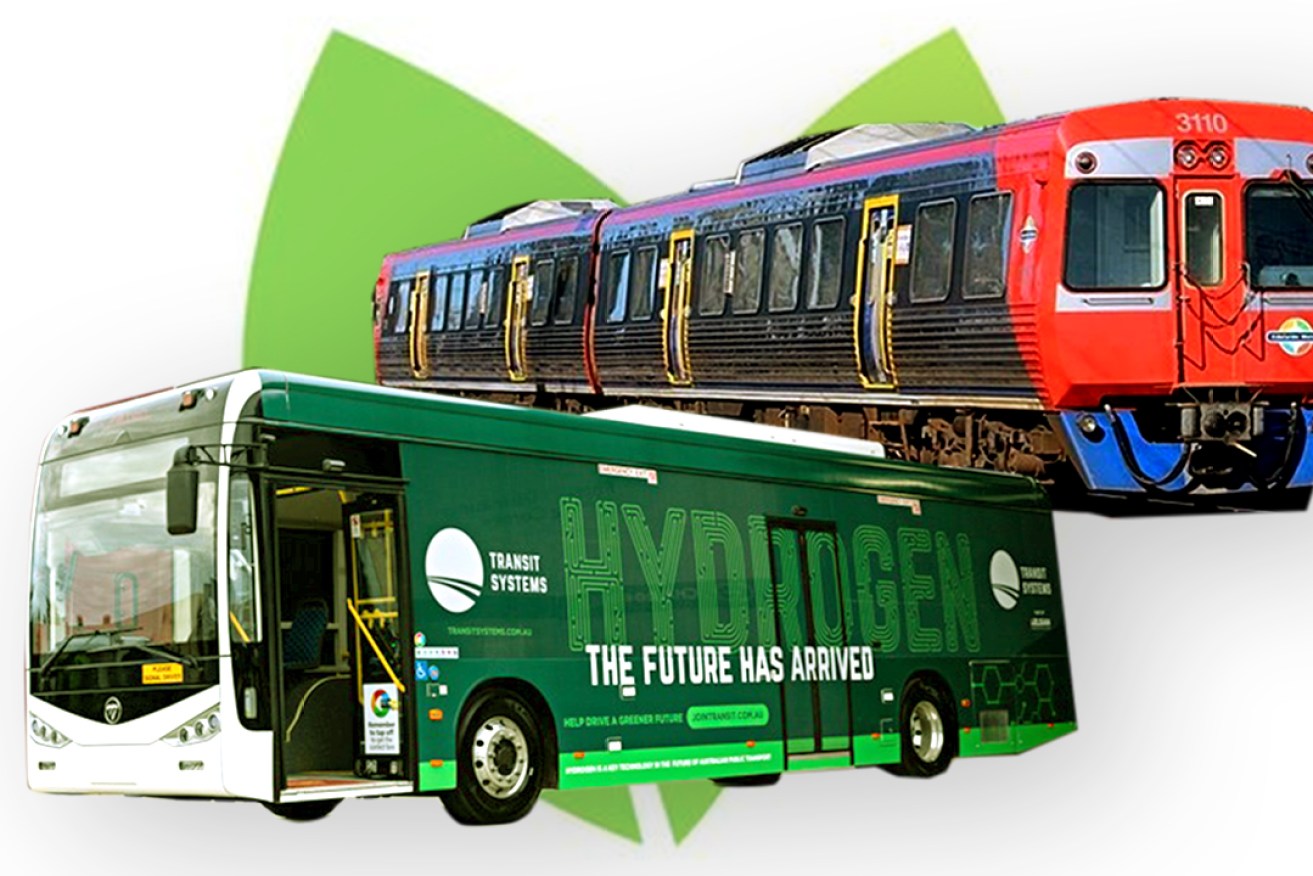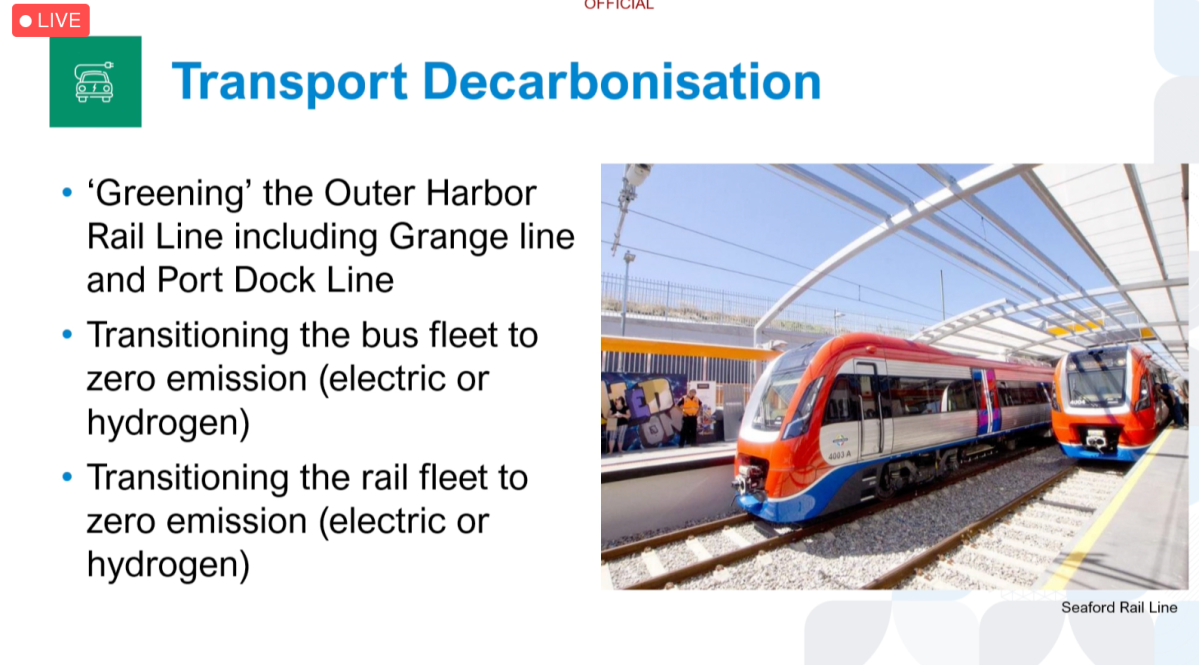Zero-emission buses and trains in Transport Dept sights
A Transport Department planner says “we can’t keep building lots of roads” and people need to be encouraged to use public transport as a first option, with work underway on a business case for transitioning Adelaide’s entire diesel bus and train fleets to zero-emission.


Image: Tom Aldahn/InDaily
The department’s executive director of transport planning and program development told a construction industry briefing on Wednesday that transport decarbonisation was among six key themes identified for future study by the Department’s planning division.
The Transport Planning Program currently has more than $20m worth of business cases, strategic studies and area plans underway this financial year.
“Transport decarbonisation, obviously everyone knows that is a big shift and change in the society and industry,” Andrew Excell said.
“We know we can’t keep building lots of roads, we can’t build our way out of it – so how are we going to use public transport?
“We need to be smarter in terms of the way we can attract people [to] public transport as a first choice.”
Excell said the department was looking at transitioning Adelaide’s bus and train fleet to zero emissions, with electric and hydrogen-powered options on the table.
The presentation also showed the department is examining “greening” the Outer Harbor rail line in the north western suburbs, along with its Grange offshoot and future $52m Port Adelaide extension.

A slide from DIT’s Transport Planning Program presentation on Wednesday.
“We have a theme of transport decarbonisation,” he said.
“So we are looking at the greening of the Outer Harbor line, I use greening in terms of whether its hydrogen, battery, battery electric or just pure electric – we need to start working through that.”
Three of Adelaide’s six passenger train lines (Seaford, Flinders, Gawler) are electrified. The remaining three (Belair, Outer Harbor, Grange) still operate diesel trains.
The Seaford line was fully electrified in 2014, followed by the Flinders extension which opened in 2020.
The Gawler line was opened as a fully electrified line in June this year after numerous cost blowouts and delays.
The cost of electrifying the northern suburbs route eventually reached more than $842m and it is not expected to operate a full complement of electric trains until mid-2023.
Excell said the Transport Department’s planning program was looking at decarbonising Adelaide’s bus and rail fleet.
“The next two points is looking at business case works on our bus fleet decarbonising – electric, hydrogen – and also our rail fleet,” he said.
“Half our [rail] fleet is on electric, but we’ve got the other lines running diesel.
“We’ve got to work through and develop these businesses cases with our colleagues at SAPTA (South Australian Public Transport Authority).
“It takes a long time to work through rail corridors and upgrade, but we’ve got to start now.
“So those [are] studies that will be coming to the market this year.”
There are more than 1000 buses and 70 diesel railcars in the Adelaide Metro network.
Adelaide Metro said in September it was acquiring 12 additional electric trains to operate the Gawler line, bringing the total number of electric railcars to 102.
It also said it was upgrading 45 of its 70 diesel railcars with hybrid energy storage and recovery systems to reduce their fuel consumption, noise and diesel fumes.
Adelaide Metro also added 17 hybrid electric buses to its fleet in January 2022.
South Australia’s public transport network is currently in private hands following a Marshall Government decision to privatise Adelaide’s passenger train and tram services.
The Malinauskas Government has vowed to reverse the privatisation and is working with private operator Keolis Downer on terminating their $2.14b contract to run the services.
The Department is also conducting an internal assessment examining the feasibility of bringing SA’s bus services – privatised in 2000 – back into public hands.
That report is due by February next year.




